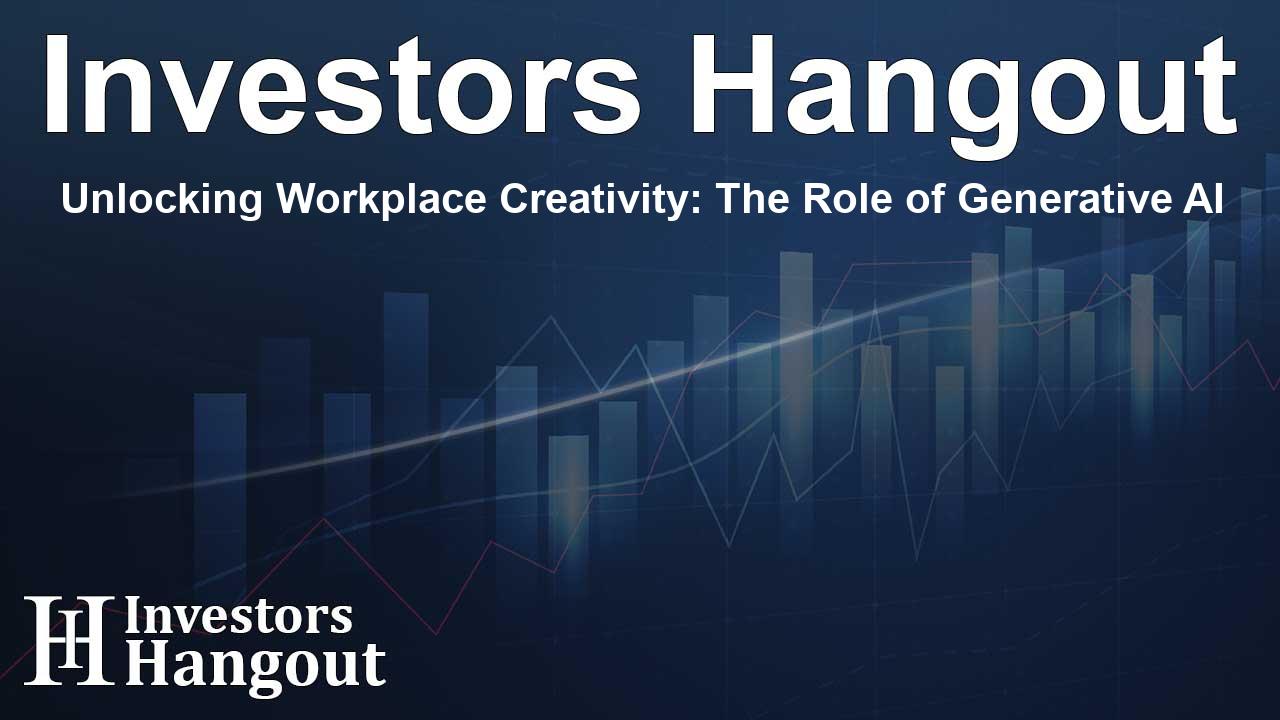Unlocking Workplace Creativity: The Role of Generative AI

How Generative AI is Transforming Workplace Creativity
As organizations around the globe integrate innovative technologies, generative AI is emerging as a game-changer in creative processes. Although the excitement surrounding these tools like ChatGPT is palpable, the results varied widely in real-world applications. A recent study highlighted that less than one-third of employees utilizing generative AI reported enhanced creativity. This statistic raises a critical question: Can generative AI truly foster creativity in the workplace?
The Research Behind Generative AI and Creativity
Insights from Leading Academics
Recent research from leading professors in psychology and management reveals that the effectiveness of generative AI greatly hinges on an individual’s metacognitive abilities. Professors from various prestigious institutions, including MIT Sloan and Tulane University, conducted an extensive study that determined that employees who practiced metacognition experienced significant creativity boosts when using AI tools.
The Importance of Metacognition
Metacognition, which refers to the awareness and understanding of one’s thought processes, serves as the catalyst that enhances creativity in conjunction with generative AI. According to Jackson G. Lu, an associate professor at MIT, employees must actively engage with AI tools instead of passively relying on them. This proactive approach helps maximize creativity and drives innovation.
Findings from the Field Experiment
Understanding the Differences Among Employees
In a field experiment conducted at a technology consulting firm, researchers randomly assigned 250 employees to either utilize ChatGPT for their tasks or not. The outcomes were illuminating: employees with access to ChatGPT were perceived as more creative by their supervisors and external evaluators, but only those who possessed strong metacognitive skills thrived. These individuals exhibited comprehensive strategies such as planning, self-monitoring, and adapting their methods as needed.
Roles of Cognitive Job Resources
The research also illuminated how generative AI facilitates cognitive job resources—important tools that aid in creativity. These resources encompass easy access to information, opportunities for task switching, and mental breaks, all of which are vital for creative thinking. However, the vital factor that determined the successful utilization of these resources was the employees' metacognitive skills. Those who practiced metacognition could leverage these resources to profoundly enhance their creativity.
Unlocking Potential through Training
Developing metacognitive strategies
One of the most compelling findings from the research is that metacognitive skills can be developed over time. Training interventions, ranging from brief sessions to more comprehensive workshops, can greatly enhance employees' metacognitive skills. This skill development is essential for organizations aiming to harness the power of generative AI effectively.
Maximizing AI's Creative Benefits
As organizations explore the integration of AI into their creative workflows, it is crucial that they incorporate metacognition training in tandem with AI deployments. As Lu emphasized, even the most advanced AI will not show improvements in creativity if employees lack the knowledge to use it effectively. By prioritizing the development of metacognitive skills, organizations can ensure that their investment in generative AI translates into tangible creative outcomes.
Conclusion
Generative AI undoubtedly holds the potential to revolutionize creativity within workplaces, but its success is predicated on the mindset of its users. By fostering strong metacognitive strategies, employees can not only enhance their creative capabilities but also fully utilize generative AI tools. As future technological advancements unfold, it’s clear that the synergy between human cognition and AI will unlock new levels of creative potential.
Frequently Asked Questions
What is generative AI?
Generative AI refers to artificial intelligence systems designed to create content—ranging from text to images—through complex algorithms that analyze existing data.
How can generative AI enhance workplace creativity?
Generative AI can enhance creativity by providing tools and resources, enabling brainstorming sessions, and inspiring innovative ideas when utilized effectively by employees.
Why are metacognitive strategies important in using generative AI?
Metacognitive strategies help employees reflect on their creative processes, allowing them to adapt their methods when using generative AI, thereby maximizing creative output.
Can organizations teach metacognitive skills?
Yes, metacognitive skills are not innate but can be developed through targeted training and exercises, which can significantly improve creative capabilities in employees.
What should organizations do to maximize AI’s creative benefits?
Organizations should integrate metacognitive training alongside AI tool deployment to help employees fully harness the capabilities of generative AI, ensuring better creative outcomes.
About The Author
Contact Ryan Hughes privately here. Or send an email with ATTN: Ryan Hughes as the subject to contact@investorshangout.com.
About Investors Hangout
Investors Hangout is a leading online stock forum for financial discussion and learning, offering a wide range of free tools and resources. It draws in traders of all levels, who exchange market knowledge, investigate trading tactics, and keep an eye on industry developments in real time. Featuring financial articles, stock message boards, quotes, charts, company profiles, and live news updates. Through cooperative learning and a wealth of informational resources, it helps users from novices creating their first portfolios to experts honing their techniques. Join Investors Hangout today: https://investorshangout.com/
The content of this article is based on factual, publicly available information and does not represent legal, financial, or investment advice. Investors Hangout does not offer financial advice, and the author is not a licensed financial advisor. Consult a qualified advisor before making any financial or investment decisions based on this article. This article should not be considered advice to purchase, sell, or hold any securities or other investments. If any of the material provided here is inaccurate, please contact us for corrections.
